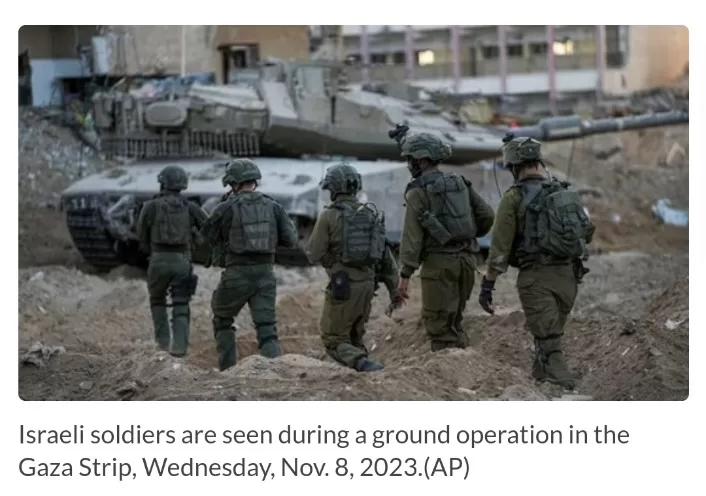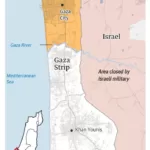In the midst of the relentless Israeli bombardment of Gaza entering its second month, diplomatic and humanitarian jargon swirls around the efforts to address the crisis. Here’s a nuanced breakdown of crucial terms provided by the UN Office for the Coordination of Humanitarian Affairs and the International Committee of the Red Cross:
Ceasefire:
A halting of hostilities, typically agreed upon by conflicting parties, with the potential to lead to a permanent settlement as part of a political solution.
Humanitarian Ceasefire/Pause:
A temporary cessation of hostilities, agreed upon for humanitarian purposes, allowing aid to enter active war zones and providing relief to civilians.
Cessation of Hostilities:
A temporary pause in fighting, often seen as a precursor to a ceasefire, enabling parties to engage in dialogue.
Humanitarian Corridor:
Designated routes for safe passage of humanitarian goods in conflict zones, ensuring the unimpeded flow of aid.
Days of Tranquility:
Temporary periods during a conflict, endorsed by UN agencies, allowing medics and personnel to provide medical attention, such as immunization campaigns.
War Crimes:
Serious breaches of international law committed against civilians or combatants during armed conflicts, subject to legal repercussions.
Truce:
A voluntary halt in fighting agreed upon by conflicting parties, not necessarily binding and driven by various reasons.
Armistice:
A formal agreement to end fighting, distinct from concluding a war, often aimed at negotiating a lasting peace.
De-escalation:
A reduction in the intensity of conflict or potential violence to alleviate human suffering.
Demilitarized Zone:
An agreed-upon area barred from military use during a conflict, sometimes patrolled by police forces.
Peacekeeping Operations/Missions:
UN-led initiatives to prevent a relapse into violence, requiring consent from conflicting parties and approval from the UN Security Council.
Peacebuilding:
Efforts to promote sustainable peace by addressing root causes of conflict and supporting local capacities for peace management.
Humanitarian Access:
Permission for organizations to provide emergency assistance in conflict areas, requiring consent from all parties involved.
Protection of Civilians:
Prioritizing the safeguarding of civilians during armed conflict, emphasizing the need for international humanitarian law.
International Humanitarian Law (IHL):
A set of rules limiting the impact of armed conflict, focusing on protecting non-combatants and regulating warfare methods.
As international outcry grows amid reports of war crimes, the call for a ceasefire intensifies. While the U.S. advocates a “humanitarian pause,” others argue that a comprehensive ceasefire is imperative to bring about substantial change in the conflict-ridden region. Israel remains resistant, linking any ceasefire to the return of hostages, adding complexity to the diplomatic landscape. Despite established rules of engagement, enforcement of these laws by overseeing organizations remains a challenge in the face of ongoing hostilities.







